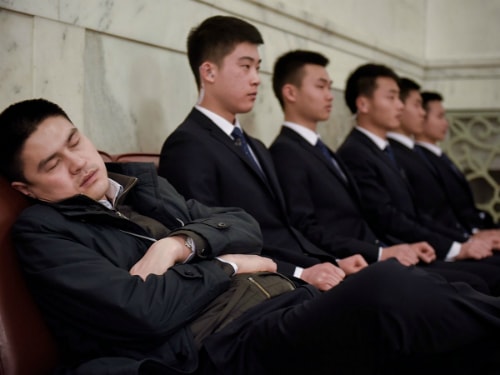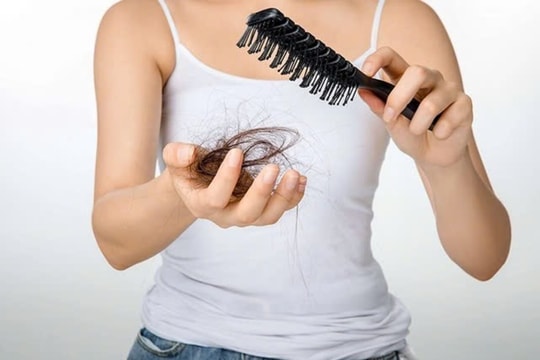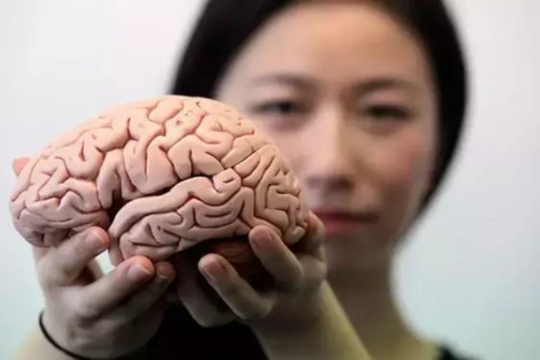How lack of sleep destroys the body
Not getting enough sleep not only makes people mentally exhausted but also increases the risk of cancer.
In an interview with the newspaperThe New York Times, billionaireElon Musk has worried friends and investors by revealing that he works too much and sleeps too little. The Tesla CEO himself has admitted that his lifestyle is not healthy.
Neuroscientist Matthew Walker from the University of California Berkeley (USA) said that the less sleep, the shorter life cycle. Although sleep time varies from person to person, most adults still need 7 to 8 hours of sleep a night.
Here are the consequences you will suffer if you lack sleep, according toBusiness Insider.
Increased risk of cancer
Poor and interrupted sleep increases the risk of cancer, especially colon and breast cancer.
Reduces skin's ability to recover and causes skin aging
According to research from the University of Wisconsin (USA), lack of sleep and chronic skin diseases are closely related. When exposed to the sun or other harmful factors, the skin cannot recover well and shows more signs of aging.
Obesity
Due to hormonal imbalance, people who are sleep deprived have increased appetite leading to obesity. In addition, they have difficulty controlling their behavior leading to self-harm.
Loneliness
Research shows that people who don't get enough sleep are less likely to socialize. They feel lonely, and worse, they often sleep poorly, which traps them in a vicious cycle.
Short-term and long-term memory and learning impairment
Several studies have shown that sleep-deprived adults have difficulty recalling vocabulary and improving learned skills.
|
Image:BI. |
Contact with Alzheimer'sheimer
Getting enough sleep helps reduce levels of Beta-Amyloid, a protein closely linked to Alzheimer's disease.
Increased risk of cardiovascular disease
Blood pressure, heart rate, and C-reactive protein levels are higher when you get less sleep, which increases your risk of cardiovascular disease.
irritable
Almost everyone feels irritable after a sleepless night, even with everyday situations.
Vision problems and hallucinations
Lack of sleep leads to tunnel vision, double vision, and blurred vision. The longer you stay awake, the more likely you are to develop refractive errors and hallucinations.
Slower and more clumsy reactions
Athletes, military personnel, and surgeons all perform poorly with lower accuracy when sleep is not guaranteed.
Weakened immune system
Just one night of sleep deprivation can impair the body’s immune system and ability to absorb vaccines. According to one study, people who don’t get enough sleep are three times more likely to catch a cold.
Decreased libido
Sleep helps replenish testosterone levels in both sexes. Decreased libido, sexual dysfunction and sleep apnea are three risks when you lack sleep.
Risk of type 2 diabetes
Having to wake up when the body needs sleep disrupts the body's mechanism, gradually leading to insulin resistance (pre-diabetes) and type 2 diabetes.
Making wrong decisions
Many studies have shown that insufficient sleep affects the ability to make decisions and carry out pre-planned tasks. This is also a part of the cause of the Chernobyl nuclear disaster, the Exxon Valdez oil spill and the explosion of the space shuttle Challenger.
Easily distracted
If you want your brain to be focused, try to get enough sleep. Lack of concentration can lead to many tragic traffic accidents due to drivers and pilots not getting enough rest.
Increased urine output
This phenomenon comes from the mechanism of increased urination at night when there is lack of sleep.
Muscle weakness
Muscle injuries from daily activities and exercise become more difficult to heal. According to research, the body secretes growth hormone to heal wounds during sleep.
Low pain tolerance
Chronic pain can be made worse by lack of sleep, which can increase sensitivity or even cause more pain.
Other health problems
Inflammatory bowel disease, irritable bowel syndrome, headaches, and many other serious illnesses can be caused by lack of sleep. Some people may even snore and are prone to sleep apnea.
Modifying gene activity
A 2013 study found that poor sleep leads to abnormal gene activity. In people who slept less than six hours a night, more than 700 genes showed abnormalities, especially genes that control the immune system and response to stress.






